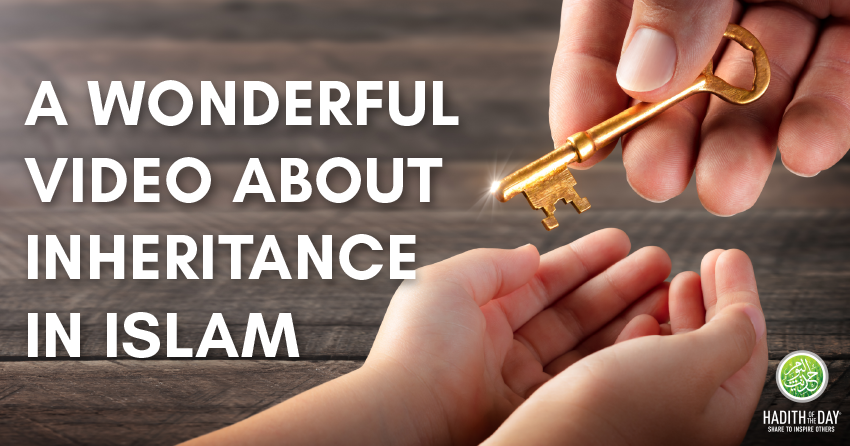Ḥusayn IbnʿAli, The Fragrant Flower of the Prophet

By Shaykh Muhammad Badat
Muḥarram
One of those months of the four months which have been mentioned as sacred in the Qur’ān is Muḥarram. Muḥarram also marks the start of the hijrah calendar year.
Due to its special significance, rewards for good deeds are multiplied; and at the same time, one should take care to abstain from sins and acts of disobedience because the consequences of sinning are also significantly worse.
Imām Qatādah (may God’s mercy be with him) says,
إِنَّ الظُّلْم فِي الْأَشْهُر الْحُرُم أَعْظَم خَطِيئَة وَوِزْرًا مِنْ الظُّلْم فِيمَا سِوَاهَا. وَإِنْ كَانَ الظُّلْم عَلَى كُلّ حَال عَظِيمًا وَلَكِنَّ اللَّه يُعَظِّم مِنْ أَمْره مَا يَشَاء
وَقَالَ: إِنَّ اللَّه اِصْطَفَى صَفَايَا مِنْ خَلْقه اِصْطَفَى مِنْ الْمَلَائِكَة رُسُلًا وَمِنْ النَّاس رُسُلًا وَاصْطَفَى مِنْ الْكَلَام ذِكْره وَاصْطَفَى مِنْ الْأَرْض الْمَسَاجِد وَاصْطَفَى مِنْ الشُّهُور رَمَضَان وَالْأَشْهُر الْحُرُم وَاصْطَفَى مِنْ الْأَيَّام يَوْم الْجُمُعَة وَاصْطَفَى مِنْ اللَّيَالِي لَيْلَة الْقَدْر فَعَظِّمُوا مَا عَظَّمَ اللَّه
(تفسير ابن كثير)
“The sin for an injustice during these (four sacred) months is greater than that same sin during other months. Although injustices always remain a major sin, Allāh is at liberty to add gravity to whatever He wishes.”
He further adds:
“Allāh has accorded special virtues to some of His creations above the rest. He has given special virtues to the messengers from among the angels, and to the messengers from mankind. He has given special virtue to His speech over that of others, and He has selected the masājid to grant His special merit from among all of the other places. From among the months, He has accorded special virtue to the month of Ramaḍān and the four sacred months. From among the days, He has selected the day of Jumuʿah (Friday), and from among the nights, He has selected the night of Qadr for special merit. One should attach a greater value to those things that Allāh has given value to. Intelligent people realize that the things which are really important are those things to which Allāh has granted importance.” (Tafsīr Ibn Kathīr)
Imām al-Jassās (may God’s mercy be with him) in his renowned work Aḥkām al-Qur’ān says:
فيكون ترك الظلم والقبائح في هذه الشهور والمواضع داعيا إلى تركها في غيره، ويصير فعل الطاعات والمواظبة عليها في هذه الشهور وهذه المواضع الشريفة داعيا إلى فعل أمثالها في غيرها للمرور والاعتياد ،
(أحكام القرآن للجصاص)
“The specialty of these months is that whoever engages in worship (in these months) will be inspired to engage in worship during the remaining months of the year as well. Similarly, a person who makes an effort to abstain from sins during these months, will find it easier to abstain from sins during the other months of the year.” (Aḥkām al-Qur’ān by al-Jaṣṣāṣ)
Owing to the special religious and historical significance connected with the month of Muḥarram, we also find people across the globe recollecting the events of history related to the grandson of the Prophet (peace and blessings be upon him), Ḥusayn ibn ʿAlī (may God be pleased with him).
It should be noted that the sanctity of Muḥarram and ʿĀshūrā (the tenth day of Muḥarram) was established since the days of the Prophet (peace and blessings upon him), and is not due to the passing away of Ḥusayn ibn ʿAlī (may God be pleased with him).
The Companions (may God be pleased with them)
Imām Ṭaḥāwī (may God’s mercy be with him) in his celebrated ʿAqīdah manual mentions:
ونحب أصحاب رسول الله صلى الله عليه وسلم، ولا نفرط في حب أحد منهم، ولا نتبرأ من أحد منهم. ونبغض من يبغضهم، وبغير الخير يذكرهم. ولا نذكرهم إلا بخير. وحبهم دين وإيمان وإحسان، وبغضهم كفر ونفاق وطغيان
(العقيدة الطحاوية)
“We love the Companions (may God be pleased with them) of the Messenger (peace and blessings be upon him), but we do not commit excess in our love for any one of them, nor do we disown any one of them. We show our disapproval for anyone who hates them or does not speak well of them, and we only speak well of them. Love for them is religion, belief, and piety; while hatred for them is disbelief, hypocrisy and transgression.” (al-ʿAqīdah al-Ṭaḥāwīyah)
He further states:
ومن أحسن القول في أصحاب رسول الله صلى الله عليه وسلم، وأزواجه الطاهرات من كل دنس، وذرياته المقدسين من كل رجس، فقد برئ من النفاق
(العقيدة الطحاوية)
“Anyone who speaks well about the Companions (may God be pleased with them) of the Messenger (peace and blessings be upon him) and his wives and offspring, who are all pure and untainted by any impurity, is free from hypocrisy.” (al-ʿAqīdah al-Ṭaḥāwīyah)
The Prophet (peace and blessings upon him) says,
عَنْ عَبْدِ اللَّهِ بْنِ مُغَفَّلٍ، قَالَ: قَالَ رَسُولُ اللَّهِ صَلَّى اللَّهُ عَلَيْهِ وَسَلَّمَ اللَّهَ اللَّهَ فِي أَصْحَابِي، لَا تَتَّخِذُوهُمْ غَرَضًا بَعْدِي، فَمَنْ أَحَبَّهُمْ فَبِحُبِّي أَحَبَّهُمْ، وَمَنْ أَبْغَضَهُمْ فَبِبُغْضِي أَبْغَضَهُمْ، وَمَنْ آذَاهُمْ فَقَدْ آذَانِي، وَمَنْ آذَانِي فَقَدْ آذَى اللَّهَ، وَمَنْ آذَى اللَّهَ فَيُوشِكُ أَنْ يَأْخُذَهُ
(رواه الترمذي)
“Fear Allāh in every matter concerning my companions. Do not make them the targets (of your criticism) after me. Whoever loves them would love them on account of his love for me, and whoever shows enmity towards them would do so on account of his being an enemy to me. Whoever insults them has insulted me and whoever insults me has insulted Allāh. Whoever insults Allāh, will soon be seized by Him.” (Tirmidhī)
At the same time excess in love for anyone leads to distortion. Some people committed excess in their love for Prophet ʿĪsā (peace and blessings upon him) raising him to the rank of divinity.
On the other hand, there are others who committed excess in their love for ʿAlī (may God be pleased with him) to the extent that they claimed divinity for him too or believed that the angel Jibrīl (peace and blessings upon him) made an error in delivering the message to the Prophet (peace and blessings upon him) instead of ʿAlī (may God be pleased with him). This excess led to insulting the other companions of the Prophet (peace and blessings upon him) like Abū Bakr, ʿUmar and ʿUthmān (may God be pleased with them) and further believing that almost all of them defected after the demise of the Prophet (peace and blessings upon him).
As believers, we should not harbor malice or hatred for any companion of the Prophet (peace and blessings upon him). We also should not comment about the differences that occurred between them on account of their ijtihād ‘personal judgements’ regarding certain matters. This is because Allāh praised them, and the Prophet (peace and blessings upon him) has warned us about making them the target of our criticism.
The Prophet (peace and blessings upon him) states:
اذْكُرُوا مَحَاسِنَ مَوْتَاكُمْ، وَكُفُّوا عَنْ مَسَاوِيهِمْ
(رواه البيهقي)
“Speak about only the good things of those of you who have died and refrain from speaking ill of them.” (Bayhaqī)
Ḥusayn ibn ʿAlī’s Birth (may God be pleased with him)
Having said that, it is worthwhile to mention a few remarkable highlights from the life of Ḥusayn ibn ʿAlī (may God be pleased with him).
قال الزبير مولده في خامس شعبان سنة أربع من الهجرة
- Ḥusayn (may God be pleased with him) was born on the 5th of Shʿabān in the 4th year of hijrah in Madīnah.
The happy news of Ḥusayn’s (may God be pleased with him) birth was foretold in a dream seen by the daughter of Ḥārith (may God be pleased with her), Umm al-Faḍl (may God be pleased with her) the wife of the uncle of the Prophet (peace and blessings upon him), ʿAbbās (may God be pleased with him).
Umm al-Faḍl (may God be pleased with her) narrates that once,
عن أبي عمار شداد بن عبد الله، عن أم الفضل بنت الحارث، أنها دخلت على رسول الله صلى الله عليه وآله وسلم فقالت: يا رسول الله، إني رأيت حلما منكرا الليلة، قال: ما هو؟ قالت: إنه شديد، قال: ما هو؟ قالت: رأيت كأن قطعة من جسدك قطعت ووضعت في حجري، فقال رسول الله صلى الله عليه وآله وسلم: رأيت خيرا، تلد فاطمة إن شاء الله غلاما، فيكون في حجرك فولدت فاطمة الحسين فكان في حجري كما قال رسول الله صلى الله عليه وآله وسلم
(المستدرك على الصحيحين للحاكم)
“She went to see the Messenger of Allāh (peace and blessings upon him) and said: ‘O Messenger of Allāh (peace and blessings upon him), I have seen a strange dream last night.’ He asked: ‘And what was it?’ She said: ‘It is dreadful.’
He again asked: ‘And what was it?’ She said: ‘I saw, as if a piece of your body was severed and was put into my lap!’ The Messenger of Allāh (peace and blessings upon him) said: ‘You saw good. Fāṭima (may God be pleased with her) will give birth, Allāh will bless her with a boy and he will be in your lap (i.e. you will nurse him).’ Then Fāṭima (may God be pleased with her) gave birth to Ḥusayn (may God be pleased with him) and he was in my lap (i.e. foster care), just as the Messenger of Allāh (peace and blessings upon him) had said.” (Mustadrak ʿalā al-Ṣaḥīḥḥayn of al-Ḥākim)
أخبرنا أبو الحسن ابن قبيس، وأبو منصور عبد الرحمان بن محمد، قالا: قال لنا أبو بكر الخطيب: وكنية الحسين بن علي أبو عبد الله، وكان أصغر من الحسن بسنة
(تاريخ دمشق لابن عساكر)
- Ḥusayn’s (may God be pleased with him) kunyah (title) was Abū ʿAbdullāh and he was a year younger than his brother, Ḥasan (may God be pleased with him). (Tārikh of Dimishiq of Ibn ʿAsākir)
عن عبيد الله بن أبي رافع، عن أبيه رضي الله عنه قال: رأيت رسول الله صلى الله عليه وآله وسلم أذن في أذن الحسين حين ولدته فاطمة رضي الله عنها
عن علي رضي الله عنه، أن رسول الله صلى الله عليه وآله وسلم أمر فاطمة رضي الله عنها فقال: زني شعر الحسين وتصدقي بوزنه فضة وأعطي القابلة رجل العقيقة
(المستدرك على الصحيحين للحاكم)
- The Prophet (peace and blessings upon him) was the one who called the adhān in the ear of Ḥusayn (may God be pleased with him) and instructed Fāṭima (may God be pleased with her) to shave his head and that silver equivalent to the weight of his hair should be given in charity. He also instructed her to perform the ritual of the aqīqah.
- The Prophet (peace and blessings upon him) gave him the name Ḥusayn (may God be pleased with him). (Mustadrak ʿalā al-Ṣaḥīḥḥayn of al-Ḥākim)
ʿAlī (may God be pleased with him) narrates:
عن هانئ بن هانئ، عن علي بن أبي طالب رضي الله عنه، قال: لما ولدت فاطمة الحسن جاء النبي صلى الله عليه وآله وسلم فقال: أروني ابني ما سميتموه؟ قال: قلت: سميته حربا، قال: بل هو حسن، فلما ولدت الحسين جاء رسول الله صلى الله عليه وآله وسلم فقال: أروني ابني ما سميتموه ؟ قال: قلت: سميته حربا، فقال: بل هو حسين، ثم لما ولدت الثالث جاء رسول الله صلى الله عليه وآله وسلم قال: أروني ابني ما سميتموه ؟ قلت: سميته حربا، قال: بل هو محسن، محسن، ثم قال: إنما سميتهم باسم ولد هارون شَبَّرُ وَشَبِيرُ وَمُشَبِّرُ
(المستدرك على الصحيحين للحاكم)
“When Ḥasan was born, I named him Ḥarb. The Prophet (peace and blessings upon him) came and said: ‘Show me my son. What did you name him?’ I said, ‘Ḥarb.’ The Prophet (peace and blessings upon him) said, “Rather he is Ḥasan”. When Ḥusayn was born, I named him Ḥarb. The Prophet (peace and blessings upon him) came and said ‘Show me my son. What did you name him?’ I said Ḥarb. Then he said, ‘Rather, he is Ḥusayn.’ When the third was born, we named him Ḥarb. The Prophet (peace and blessings upon him) came and said, ‘Show me my son. What did you name him?’ I said Ḥarb. The Prophet (peace and blessings upon him) said, ‘Rather, he is Muḥsin.’ Then the Prophet (peace and blessings upon him) said, ‘I named them with the name of the children of Harūn: Shabbar, Shabbīr, and Mushabbir.’” (Mustadrak ʿalā al-Ṣaḥīḥḥayn of al-Ḥākim)
The names Ḥasan and Ḥusayn are among the names from the people of paradise and were not known prior to the dawn of Islām.
عَنْ عِمْرَان بْن سُلَيْمَان، قَالَ: الْحَسَن والْحُسَيْن اسمان من أسماء أَهْل الجنة لم يكونا فِي الجاهلية
(اسد الغابة)
ʿImrān ibn Sulaiman states: “Ḥasan and Ḥusayn are from the names of the people of paradise, and they were not known during the times of Jahilīlyah.” (Asad al-Ghābah)
Beloved to the Prophet (peace and blessings be upon him)
Ḥasan and Ḥusayn (may God be pleased with them) were the rayḥānah ‘fragrant flowers i.e. beloved’ of the Prophet (peace and blessings upon him).
عن أبي أيوب الأنصاري قال دخلت على رسول الله صلى الله عليه وسلم والحسن والحسين يلعبان على صدره فقلت يا رسول الله أتحبهما قال كيف لا أحبهما وهما ريحانتاي من الدنيا
(رواه الطبراني في المعجم)
Abū Ayyūb al-Anṣārī (may God be pleased with him) narrates that once he visited the Prophet (peace and blessings upon him) and he found Ḥasan and Ḥusayn (may God be pleased with them) playing on the chest of the Prophet (peace and blessings upon him). So, I said to him, “O Messenger of Allāh! Do you love them?” He replied, “How could I not love them when they are my two rayḥānah’s in the life of this world?” (Ṭabarānī)
عن أبي سعيد الخدري رضي الله عنه، عن النبي صلى الله عليه وآله وسلم أنه قال: الحسن والحسين سيدا شباب أهل الجنة
(المستدرك على الصحيحين للحاكم)
-
The Prophet (peace and blessings upon him) stated that Ḥasan and Ḥusayn (may God be pleased with him) are the leaders of the youth of Paradise. (Mustadrak ʿalā al-Ṣaḥīḥḥayn of al-Ḥākim)
-
Ḥasan and Ḥusayn (may God be pleased with them) were very dear to the Prophet (peace and blessings upon him).
عَنْ عَبْدِ اللَّهِ بْنِ أَبِي بَكْرِ بْنِ زَيْدِ بْنِ المُهَاجِرِ قَالَ: أَخْبَرَنِي أَبِي أُسَامَةُ بْنُ زَيْدٍ، قَالَ: طَرَقْتُ النَّبِيَّ صَلَّى اللَّهُ عَلَيْهِ وَسَلَّمَ ذَاتَ لَيْلَةٍ فِي بَعْضِ الحَاجَةِ فَخَرَجَ النَّبِيُّ صَلَّى اللَّهُ عَلَيْهِ وَسَلَّمَ وَهُوَ مُشْتَمِلٌ عَلَى شَيْءٍ لَا أَدْرِي مَا هُوَ، فَلَمَّا فَرَغْتُ مِنْ حَاجَتِي. قُلْتُ: مَا هَذَا الَّذِي أَنْتَ مُشْتَمِلٌ عَلَيْهِ؟ فَكَشَفَهُ فَإِذَا حَسَنٌ وَحُسَيْنٌ عَلَى وَرِكَيْهِ، فَقَالَ: «هَذَانِ ابْنَايَ وَابْنَا ابْنَتِيَ، اللَّهُمَّ إِنِّي أُحِبُّهُمَا فَأَحِبَّهُمَا وَأَحِبَّ مَنْ يُحِبُّهُمَا
(رواه الترمذي)
Osama ibn Zayd (may God be pleased with him) narrates that, “One night I visited the Messenger of Allāh (peace and blessings upon him) due to some need and saw him carrying something on his back which I could not recognize. When I finished my task I enquired, ‘What are you carrying O Messenger of Allah (peace and blessings upon him)?’ The Prophet (peace and blessings upon him) removed the cover and I saw that he was carrying Ḥasan and Ḥusayn (may God be pleased with them). He then said, ‘O Allāh! These two are my sons and the sons of my daughter. O Allāh! I love them, so love them also and love those who love them.’” (Tirmidhī)
روى هانىء بن هانىء عن علي قال الحسين أشبه برسول الله صلى الله عليه وسلم من صدره إلى قدميه
(سير أعلام النبلاء)
- Ḥusayn’s (may God be pleased with him) physical appearance was similar to the Messenger of Allāh (peace and blessings upon him). He (may God be pleased with him) resembled the Messenger of Allāh (peace and blessings upon him) from below the chest. (Siyar ʿAlām al-Nubalā’)
عن إبراهيم بن علي الرافعي، عن أبيه، عن جدته بنت أبي رافع قالت: أتت فاطمة بنت رسول الله صلى الله عليه وسلم بابنيها الحسن والحسين عليهما السلام إلى رسول الله صلى الله عليه وسلم في شكواه الذي توفي فيه، فقالت: يا رسول الله هذان ابناك فورّثهما شيئاً قال: أما الحسن فإن له هيبتي وسؤددي وأما الحسين فإن له جرأتي وجودي
(أخرجه ابن عساكر(
Once Fāṭima (may God be pleased with her) brought her children to the Prophet (peace and blessings upon him) and asked him: “O Messenger of Allāh (peace and blessings upon him), these are your sons, so bequeath something to them.” He replied: “As for Ḥasan, to him belongs my appearance and power; and as for Ḥusayn, to him belong my courage and generosity.” (IbnʿAsākir in Tārīkh Dimashq)
Features and Status of Ḥusayn ibn ʿAlī’ (may God be pleased with him)
عن جعفر بن محمد، عن أبيه، أن الحسين بن علي رحمه الله تختّم في اليسار
عن السدي، قال: رأيت حسين بن علي رحمه الله وإنّ جُمّته خارجة من تحت عمامته.
عن عبد الله بن يزيد، قال: رأيت على الحسين بن علي رضي الله عنهما جُبّة خزّ.
عن السَّرِي بن كعب الأزدي، قال: رأيت الحسين بن عليّ واقفًا على برذون أبيض قد خضب رأسه ولحيته بالوسمة.
وعن عبيد الله بن يزيد قال: رأيت الحسين بن علي أسود الرأس واللحية إلا شعرات في مقدم لحيته, وروي أنه كان يصبغ شعره بالوسمة وهي نبت يختضب به وكان مع ذلك طويل الشعر يضرب أحيانًا إلى منكبيه
(الطبقات الكبرى)
-
Ḥusayn (may God be pleased with him) used to wear his ring in his left hand.
-
Ḥusayn (may God be pleased with him) had long hair which would hang from underneath his turban.
-
He would wear loose outer garments ‘thawb or thobe’ which had a soft silk like texture.
-
He had black hair and a black beard with the exception for some white hairs in the front of his beard.
-
It was said that he used to dye his hair with the wasmah – a kind of tree originating in Yemen. People would dye their hair with the dye of its leaves.
-
His hair was long and sometimes reached his shoulders. (Ṭabqāt al-Kubrā)
The Prophet (peace and blessings upon him) would seek refuge with Allāh for the protection of Ḥusayn (may God be pleased with him) from the evil effects of others.
عن سعيد بن جبير عن ابن عباس رضي الله عنهما قال كان النبي صلى الله عليه وسلم يعوذ الحسن والحسين ويقول إن أباكما كان يعوذ بها إسماعيل وإسحاق أعوذ بكلمات الله التامة من كل شيطان وهامة ومن كل عين لامة
(أخرجه ابن عساكر)
The Prophet (peace and blessings upon him) would supplicate saying: “O Allāh I seek refuge in You for Ḥasan and Ḥusayn with the perfect words of Allāh from every devil and every poisonous, verminous creature and every envious eye.” Then he would say: “This is how my father, Ibrahīm (peace and blessings upon him) sought Allāh’s protection for Ismaʿīl and Isḥāq (peace and blessings upon them).” (Ibn ʿAsākir in Tārīkh Dimashq)
- Ḥusayn (may God be pleased with him) was from among the Ahl al-Kisā ‘Family of the Cloak’.
عن أم سلمة إن النبي صلى الله عليه وسلم جلل عليا وفاطمة وابنيهما بكساء ثم قال اللهم هؤلاء أهل بيت بنتي وحامتي اللهم أذهب عنهم الرجس وطهرهم تطهيرا فقلت يا رسول الله أنا منهم قال إنك إلى خير
(سير أعلام النبلاء)
Once the Prophet covered ʿAlī, Faṭima, Ḥasan, and Ḥusayn (may God be pleased with them), with a cloak and supplicated: “O Allāh! These are my family members so, remove all impurity from them and cleanse them thoroughly.” Umm Salamah (may God be pleased with her) the wife of Prophet (peace and blessings upon him) asked, “Am I also included among them, O Prophet of Allāh (peace and blessings upon him)?” The Prophet (peace and blessings upon him) replied: “You remain in your position and you are toward a good ending.” (Siyar ʿAlām al-Nubalā’)
- The Prophet (peace and blessings upon him) referred to Ḥusayn (may God be pleased with him) as sibṭun minal-asbāṭ ‘a nation from the nations of goodness’.
عَنْ يَعْلَى بْنِ مُرَّةَ، قَالَ: قَالَ رَسُولُ اللَّهِ صَلَّى اللَّهُ عَلَيْهِ وَسَلَّمَ: حُسَيْنٌ مِنِّي وَأَنَا مِنْ حُسَيْنٍ، أَحَبَّ اللَّهُ مَنْ أَحَبَّ حُسَيْنًا، حُسَيْنٌ سِبْطٌ مِنَ الأَسْبَاطِ
(رواه الترمذي)
The Prophet of Allāh (peace and blessings upon him) said, “Ḥusayn is part of me and I am part of him. May Allāh love those who love Ḥusayn. Ḥusayn is one of my grandsons.” (Tirmidhī)
قال العلامة اللغوي ابن منظور: في الحديث أَيضاً: الحسينُ سِبْطٌ من الأَسْباط، أَي أُمَّةٌ من الأُمم في الخير
(لسان العرب(
Sibṭ literally means grandson, however here it means that Ḥusayn (may God be pleased with him) was a nation from the nations of goodness. (Lisān al-ʿArab)
- The crying of Ḥusayn (may God be pleased with him) would cause pain to the Prophet (peace and blessings upon him).
وفي مراسيل يزيد بن أبي زياد: أن النبي صلى الله عليه وسلم سمع حسينا يبكي، فقال لأمه: ألم تعلمي أن بكاءه يؤذيني
(سير أعلام النبلاء)
Once the Prophet (peace and blessings upon him) passed by the door of ʿAlī (may God be pleased with him) and he heard the sound of Ḥusayn (may God be pleased with him) crying, so he called out to his mother saying, “Don’t you know that his crying pains me!” (Siyar ʿAlām al-Nublā’)
Beloved to All
Abū Bakr (may God be pleased with him) also loved Ḥusayn (may God be pleased with him) very much and he felt a special closeness to him for the reason that he loved all of those whom the Prophet (may God be pleased with him) loved. Whenever he would see Ḥusayn (may God be pleased with him) he would say:
كان ابو بكر حينما يري الحسين يقول والذي نفسي بيده لقرابة محمد احب الي من قرابتى
(أخرجه ابن عساكر)
“By Him in Whose Hand is my life, the relatives of Moḥammed (peace and blessings upon him) are dearer to me than my own (relatives)!” (Ibn ʿAsākir in Tārīkh Dimashq)
Once ʿAmr ibn al-ʿĀṣ (may God be pleased with him) was sitting in the shade of the Kaʿbah in Masjid al-Ḥarām when he saw Ḥusayn (may God be pleased with him) approaching, he remarked:
عن العيزار بن حريث قال: بينما عمرو بن العاص جالس في ظل الكعبة إذ رأى الحسين بن علي مقبلا فقال: هذا أحب أهل الارض إلى أهل السماء اليوم
(أخرجه ابن عساكر)
“This is the most beloved person on the earth today in the eyes of those in the heaven.” (Ibn ʿAsākir in Tārīkh Dimashq)
Abū Hurairah (may God be pleased with him) also had great love and respect for Ḥusayn (may God be pleased with him).
عن أَبِي المُهَزِّم، قال: كنا مع جنازة امرأة، ومعنا أبو هريرة، فجيء بجنازة رجل، فجعله بينه وبين المرأة، فصلّى عليهما، فلما أقبلنا أعْيا الحسين، فقعد في الطريق، فجعل أبو هريرة ينفض التراب عن قدميه بطرف ثوبه، فقال الحسين: يا أبا هريرة، وأنت تفعل هذا؟ قال أبو هريرة: دعني فوالله لو يعلم الناس منك ما أعلم لحملوك على رقابهم
(أخرجه ابن عساكر)
Abū Muhazzim says, “Once we attended a woman’s funeral, and Abū Hurairah (may God be pleased with him) was also with us. The funeral prayer was performed. As we were returning, Ḥusayn (may God be pleased with him) got tired and sat down on the road. Abū Hurairah (may God be pleased with him) began to wipe away the dust from the feet of Ḥusayn (may God be pleased with him) and so he (may God be pleased with him) remarked, ‘O Abū Hurairah a person of your status, and you are doing this?’ Abū Hurairah (may God be pleased with him) replied, ‘Let me, as by Allāh, if people knew what I know about you, they would carry you on their shoulders.’” (IbnʿAsākir in Tārīkh Dimashq)
يقول الزهري: إن عمر رضي الله تعالى عنه كسا أبناء الصحابة، ولم يكن في ذلك ما يصلح للحسن والحسين، فبعث إلى اليمن، فأتي بكسوة لهما، وقال: الآن طابت نفسي،
(أخرجه ابن عساكر)
Once ʿUmar (may God be pleased with him) distributed some garments that had come to him from Yemen among the children of the companions, which were not suitable for Ḥasan and Ḥusayn (may God be pleased with them). So he sent word to his representatives in Yemen and ordered special clothes to be tailored for them. When the clothes arrived and he dressed Ḥasan and Ḥusayn (may God be pleased with them) in them he said,“Now I am pleased and satisfied.” (Ibn ʿAsākir in Tārīkh Dimashq)
- Ḥusayn (may God be pleased with him) was an extremely learned man and proficient in Islāmic knowledge.
Once Muʿāwīyah (may God be pleased with him) said to a man of Quraysh:
عن أبي سعيد الكلبي قال: قال معاوية لرجل من قريش: إذا دخلت مسجد رسول الله صلى الله عليه وسلم فرأيت حلقة فيها قوم كأن على رؤسهم الطير، فتلك حلقة أبي عبد الله مؤتزرا على أنصاف ساقيه ليس فيها من الهُزَيْلا شئ
(أخرجه ابن عساكر)
“When you enter the masjid of the Prophet (peace and blessings upon him) and you see a circle of people sitting as if there were birds on their heads, then that is the study circle of Abū ʿAbdullāh whose lower garment reaches half way down to his calves.” (Ibn ʿAsākir in Tārīkh Dimashq)
Amazing Character of Ḥusayn ibn ʿAlī’s (may God be pleased with him)
- Ḥusayn (may God be pleased with him) was also very generous, charitable, benevolent and kind hearted.
Once a beggar was traversing the streets and alleys of Madīnah and came to the house of Ḥusayn (may God be pleased with him) and knocked on the door and began to say:
وروى ابن عساكر باسناده عن الذيال بن حرملة، قال: خرج سائل يتخطى أزقة المدينة حتى أتى باب الحسين بن علي فقرع الباب وأنشأ يقول:
لم يخب اليوم من رجاك ومن ۞ حرّك من خلف بابك الحلقة
فأنت ذو الجود أنت معدنه ۞ أبوك قد كان قاتل الفسقة
قال: وكان الحسين بن علي واقفاً يصلي، فخفف من صلاته وخرج إلى الاعرابي فرأى عليه أثر ضر وفاقة، فرجع ونادى بقنبر فأجابه: لبيك يا ابن رسول الله. قال: ما تبقى معك من نفقتنا؟ قال: مائتا درهم أمرتني بتفريقها في أهل بيتك، قال: فهاتها فقد أتى من هو أحق بها منهم، فأخذها من قنبر، وخرج فرفعها إلى الاعرابي وانشأ يقول:
خذها فإني اليك معتذر ۞ واعلم بأني عليك ذو شفقة
لو كان في سيرنا الغداة عصاً ۞ كانت سمانا عليك مندفقة
قال: فأخذها الاعرابي وولّى وهو يقول:
مطهرون نقيّات جيوبهم ۞ تجري الصلاة عليهم أينما ذكروا
وأنتم أنتم الأعلون عندكم ۞ علم الكتاب وما جاءت به السور
من لم يكن علوياً حين تنسبه ۞ فما له في جميع الناس مفتخر
“Whoever asked you this day will not loose thereby,
And whoever knocked on your door,
You are generous and you are the essence of generosity,
Your father fought against the rebels.”
Ḥusayn (may God be pleased with him) was in prayers when he heard this. So he completed his prayers quickly and went out to the beggar and noticed signs of hardship and poverty on him. He returned and called for his worker Qambar, who responded, “I am at your service O son of the Messenger of Allāh (peace and blessings upon him)!” Ḥusayn (may God be pleased with him) asked him, “What do we have left of our provisions?” He replied, “200 dirhams which you had instructed me to distribute among the members of your family.” Ḥusayn (may God be pleased with him) said, “Bring that to me, for a person has come who is more deserving of it than they are.” So he took it and gave it to the beggar saying:
“Take it, for I apologize to you,
And know that I am full of compassion for you,
If there was more, we would give it to you,
Our sky would rain wealth upon you.”
The beggar took it and left saying:
“Purified are they and purified is their wealth,
Blessings are invoked upon them wherever they are mentioned,
And you, you are the highest,
You have knowledge of the Book and what the Sūwar say,
Whoever was not from the family of ʿAlī, he has no right to be proud among the people.”
(Ibn ʿAsākir in Tārīkh Dimashq)
Piety and Worship of Ḥusayn ibn ʿAlī (may God be pleased with him)
وكان الحسين رضي الله عنه فاضلًا، كثير الصوم، والصلاة، والحج، والصدقة، وأفعال الخير جميعها، حج الحسين خمسًا وعشرين حجة ماشيًّا
(أخرجه ابن عساكر)
- Ḥusayn (may God be pleased with him) was very pious, religious and a devout servant of Allāh. He excelled in acts of worship such as fasting, prayers, charity, and ḥajj.
- Ḥusayn (may God be pleased with him) performed ḥajj twenty-five times on foot.
حكى: أنه (أي الحسين بن علي عليهما السلام) يصلي في اليوم والليلة ألف ركعة [1]
وقيل لعلي بن الحسين: ما كان أقل ولد أبيك؟ قال: العجب كيف ولدت له كان يصلي في اليوم والليلة ألف ركعة فمتى كان يتفرغ للنساء
(عقد الفريد(
Both Ḥāfiẓ Ibn al-Ḥajr al- Haitamī (may God’s mercy be with him) and Ḥāfiẓ Ibn ʿAbd Rabbihī al-Andlūsī (may God’s mercy be with him) in their respective works have reported that Ḥusayn (may God be pleased with him) use to perform 1,000 rakʿah nafl ṣalāh daily.
- Ḥusayn (may God be pleased with him) was very humble and displayed a modest and low estimate of one’s own importance at all times.
وَعَنْ الْحُسَيْن بْن عَلِيّ أَنَّهُ مَرَّ بِمَسَاكِين قَدْ قَدَّمُوا كِسَرًا بَيْنهمْ وَهُمْ يَأْكُلُونَ فَقَالُوا: الْغِذَاء يَا أَبَا عَبْد اللَّه , فَنَزَلَ وَجَلَسَ مَعَهُمْ وَقَالَ: إِنَّهُ لَا يُحِبّ الْمُسْتَكْبِرِينَ فَلَمَّا فَرَغَ قَالَ: قَدْ أَجَبْتُكُمْ فَأَجِيبُونِي: فَقَامُوا مَعَهُ إِلَى مَنْزِله فَأَطْعَمَهُمْ وَسَقَاهُمْ وَأَعْطَاهُمْ وَانْصَرَفُوا . قَالَ الْعُلَمَاء
)تفسير القرطبي(
Once Ḥusayn (may God be pleased with him) passed by some needy people who were eating a loaf of bread among themselves, so they said to him, “Would you like some food O Abā ʿAbdullāh?” So he dismounted from his horse and sat with them and said, إِنَّهُ لَا يُحِبُّ الْمُسْتَكْبِرِينَ – “He (Allāh) does not love the arrogant ones.” After they finished eating he said to them, “Indeed I accepted your invitation, now it is time for you to accept mine!” So they accompanied him home, He gave them food and drink and provided them with their needs. After which they all left. (Tafsīr al-Qurtubī)
وقد أدرك الحسين من حياة النبي صلى الله عليه وسلم خمس سنين أو نحوها، وروى عنه أحاديث، أن الحسين عاصر رسول الله صلى الله عليه وسلم وصحبه إلى أن توفي وهو عنه راض، ولكنه كان صغيرا
(البداية والنهاية)
- Ḥusayn (may God be pleased with him) was blessed to witness approximately five years of the life of the Prophet (peace and blessings upon him).
- He was approximately six or seven years old when the Prophet (peace and blessings upon him) passed away. (al-Bidāyah wa al-Nihāyah)
Owing to his young age, he narrated only a few ahādīth from the Prophet (peace and blessings upon him).
Three of those notable ahādīth are:
أخبرناأبو محمد القاسم بن علي بن الحسن، أخبرتنا أم المجتبى العلوية قالت: قرأ علي إبراهيم ابن منصور، أخبرنا أبو بكر بن المقرئ، أخبرنا أبو يعلى الموصلي، حدثنا جبارة بن مغلس، أخبرنا يحيى بن العلاء، عن مروان بن سالم، عن طلحة بن عبيد الله، عن الحسين بن علي قال: قال رسول الله: أمان أمتي من الغرق إذا ركبوا البحر أن يقرؤوا: بسم الله مجراها ومرساها إن ربي لغفور رحيم
(اسد الغابة)
عن ابن شهاب عن علي بن حسين بن علي بن أبي طالب أن رسول الله صلى الله عليه وسلم قال: من حسن إسلام المرء تركه ما لا يعنيه
(رواه مالك في الموطأ(
أخبرنا أبو الفضل بن أبي الحسن بن أبي عبد الله الديني المخزومي بإسناده إلى أحمد بن علي بن المثنى أخبرنا عبد الرحمن بن سلام الجمحي أخبرنا هشام بن زياد عن أمه عن فاطمة بنت الحسين: أنها سمعت أباها الحسين بن علي يقول: سمعت رسول الله صلى الله عليه و سلم يقول: ما من مسلم ولا مسلمة تصيبه مصيبة وإن قدم عهدها فيحدث لها استرجاعا إلا أحدث الله له عند ذلك وأعطاه ثواب ما وعده بها يوم أصيب بها
(اسد الغابة)
- “If a person is afflicted with an adversity which subsequently returns to haunt him later on, however at that time he says: ‘Innā lillahī wa innā ilayhī rajiʿūn’ Surely, we belong to Allāh and to Him shall we return, Allāh will bestow him with the same reward which he gave him on the first day.” (Asad al-Ghābah)
- “My nation’s safety from drowning when they cruise the sea is to recite: ‘With the name of Allāh, it sails and anchors. Surely, my Lord is Most-Forgiving, All-Merciful.’” (Muwaṭṭā of Īmām Mālik)
- “Part of the perfection of a person’s Islām is for him to leave that which is of no concern to him.” (Asad al-Ghābah)
ووجدوا بالحسين ثلاثا وثلاثين جراحة، ووجدوا في ثوبه مائة وبضعة عشر خَرْقًا من السهام وأثر الضرب، وقتل يوم الجمعة يوم عاشوراء في المحرم سنة إحدى وستين، وله يومئذ ست وخمسون سنة وخمسة أشهر
(الطبقات الكبرى)
Martyrdom of Ḥusayn ibn ʿAlī (may God be pleased with him)
- Ḥusayn ibn ʿAlī (may God be pleased with him) was killed on the day of ʿĀshūrā’ (10th day of Muḥarram) on a Friday in the year 61 hijrah at the age of 57, making him among the eldest of the Prophet’s (peace and blessings upon him) household. (al-Ṭabaqāt al-Kubrā)
- Ḥusayn ibn ʿAlī (may God be pleased with him) was blessed with four children: ʿAlī al-Akbar, ʿAlī al-Aṣghar, Fāṭima and Sakīnah.
The circumstances leading up to the death of Ḥusayn (may God be pleased with him) was that when the people of Kūfā heard about the death of Muʿāwiyah (may God be pleased with him) and the appointment of his son Yazīd as his successor, they sent word to Ḥusayn (may God be pleased with him) and pledged allegiance to him. They requested for him to come to Kūfā, however they broke their pledge, betrayed and killed him and 72 other Muslims in Karbalā where they had taken refuge.
ووقف أصحابه يخاطبون القوم ويذكرونهم الله، فلما أخبره العباس بقولهم قال له الحسين: ارجع إليهم فإن استطعت أن تؤخرهم إلى غدوة لعلنا نصلي لربنا هذه الليلة وندعوه ونستغفره فهو يعلم أني كنت أحب الصلاة له وتلاوة كتابه وكثرة الدعاء والاستغفار
فلما أمسوا قاموا الليل كله يصلون ويستغفرون ويتضرعون ويدعون
(الكامل في التاريخ(
- Ḥusayn ibn ʿAlī (may God be pleased with him) and his convoy spent the entire night preceding the day of ʿĀshūrā’ in worship and supplications. (al-Kāmil fī al-Tārīkh)
- At the time of his demise, he had 33 stab wounds and 112 slashes in his garments due to the arrows upon him and trauma impact on his body.
إنّا لله وإنّا إليهِ رَاجعُون
May Allāh bless his soul and elevate his rank.
- This historic encounter between truth and falsehood took place during the same month that Allāh saved Prophet Mūsā (peace and blessings upon him) and the Banī Isrāīl from the tyranny of Firʿawn.
- In both instances, Prophet Mūsā (peace and blessings upon him) and the Prophet’s (peace and blessings upon him) grandson Ḥusayn ibn ʿAlī (may God be pleased with him) stood for truth and justice.
- Ḥusayn (may God be pleased with him) was killed, yet he remains alive in the hearts of Muslims just as he is alive with Allāh
Let us conclude with a supplication from Ḥusayn (may God be pleased with him). It is reported that once while grasping onto Rukn al-Yamanī of the Kaʿbah in Masjid al-Ḥarām he supplicated,
التزم الحسين بْن عَلِيّ الركن وَقَالَ
إلهي نعّمتني فلم تجدني شاكراً
وأبليتني فلم تجدني صابراً
فلا أنت سلبت النعمة لترك الشكر
ولا أدمت الشدة لترك الصبر
إلهي ما يكون من الكريم إلاّ الكرم
(اسد الغابة)
“O, my Lord! You sustained me but You did not find me grateful,
And You tested me, and You did not find me patient,
But You did not deprive me of my sustenance because of my ingratitude,
Nor did You cause the hardship to remain because of my lack of patience.
O my Lord! Nothing comes from the Most Kind except kindness.”
(Asad al-Ghābah)
[1] أحمد بن حجر الهيتمي في (الصواعق المحرقة)
Proudly brought to you by Mathabah, more Mathabah can be found at https://www.mathabah.org/the-ray%e1%b8%a5anah-fragrant-flower-of-the-prophet-%e1%b8%a5usayn-ibn%ca%bfali/
Since You’re Here… we have a small favour to ask.
In these extraordinary times, millions rely on HOTD for daily uplifting & inspiring content. Established since 2009 and with your kind support we’ve seen readers elevate their Imaan & strive for better on a daily basis. We’re committed to keeping our content freely available and open for all readers. Every contribution, however big or small, makes a difference and help us spread knowledge to millions daily
HOTD is something special, it’s a place where people can come to be inspired, to renew their faith, to learn and share knowledge, to fall in love with our faith and also our Prophet (peace and blessings be upon him and his family).
All content on HOTD is free. We believe what we do in this life builds for the next one and we work tirelessly with the aim to please Allah and inspire the global Muslim community as
well as providing information and inspiration for anyone interested in Islam. We simply cannot do this without your support and your support helps us continue our services.
If there were ever a time to join us, it is now. You can support HOTD and help sustain our future. Support Hadith of the Day and make a one-off donation or give regularly from as little as £10 a month Jazak’Allah Khayr – whatever you donate will come back to benefit you Insha’Allah as whatever is spent in the way of Allah is an investment in the future and the next life. Thank you.







